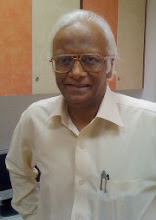HAPPY BIRTHDAY OPRAH!
SUNNY THOMAS
Americans may have got everything
else wrong. But they got one thing right. In America, birth does not script
success in life but merit. But in India, birth predetermines your life and
career. If you don’t have the right surname or belong to the right OBC quota,
your future is bleak.
Born into poverty to an unwed
teenage mother, raped at nine and pregnant at 14, she was sent to live with a
man whom she calls her father, a barber in Tennessee. She started reading at the age of three under the influence of her grandmother,
and landed a job in radio while still in high school and began co-anchoring the
local evening news at the age of 19. Her emotional delivery turned a
daytime-talk-show rated third in Chicago to the first place, and
eventually she became the Queen of Talk-Shows and made a fortune. Today she is
rated as one of the 100 most influential persons of the 20th century.
That in short was the story of
Oprah Winfrey, who celebrates her 58th birthday on Jan 29. She redefined the
Talk-Show by creating an intimate confessional form that drew instant applause
from the audience. She wants her audience to know there is a human heart behind
the Talk-Show that resonates with the audience’s own. At her career peak, she
had 14 million viewers a day spanning across 140 countries.
Her early childhood is a saga of misery.
She was named Orpah named after the Biblical character in the Book of Ruth, but her family and friends could not comfortably pronounce that name,
and they changed it to Oprah.
Her mother Vernita Lee was a
housemaid. Her biological father, Oprah believed, was Vernon Winfrey, a coal
miner-turned-barber-turned city councilman who had been in the Armed Forces
when she was born. Decades later, Mississippi farmer and World War II veteran
Noah Robinson Sr. claimed he was her biological father. Her grandmother’s
greatest ambition was to see her as a maid in a respectable white man’s house!
Nevertheless, Oprah Winfrey became
a millionaire at age 32. At 41, she had a net worth of $340 million, replacing Bill Cosby as the only African American on the Forbes 400. In
September 2010, she was worth over $2.7 billion and has overtaken former eBay CEO Meg Whitman as
the richest self-made woman in America, reports Forbes.
In one of her TV shows, Oprah made
a startling confession: she was molested by her cousin, her uncle, and a
family friend, starting when she was nine years old. She told her viewers on a
1986 episode when sexual abuse was discussed. At 13, after
suffering years of abuse, she ran away from home. When she was 14, she
became pregnant, her son dying shortly after birth. It is her candour that
endears her to her global audience.
In 1993, Winfrey hosted a rare
prime-time interview with Michael Jackson, which became the fourth most watched event in American television
history as well as the most watched interview ever, with an audience of
36.5 million.
In 1985, Winfrey co-starred in Steven Spielberg's The Color Purple as distraught housewife, Sofia. She was nominated for an Academy Award for Best Supporting Actress for her performance. In October 1998, Winfrey produced and starred in the film Beloved, based on Toni Morrison's Pulitzer Prize winning novel of the same name.
Winfrey has co-authored five books.
In 2005, her undisclosed advance had broken the record for the world's highest
book advance fee, previously held by the autobiography of Bill Clinton.
Her publications include O, The Oprah Magazine and O at Home.
Oprah considers Maya Angelou, author of I Know Why Caged Bird sings, her mentor and close friend; she calls Angelou her
"mother-sister-friend" Winfrey and her boyfriend Stedman Graham have been together since 1986. They were engaged to be married
in November 1992, but the ceremony never took place.
Oprah Winfrey was called
"arguably the world's most powerful woman'' by CNN and Time.com,
and "arguably the most influential woman in the world" by American Spectator. She was the only person to
have appeared eight times on Time magazine’s list of one of the 100 people who most influenced the 20th century and from 2004 to 2011.At the end of the 20th century Life listed Winfrey as both the most
influential woman and the most influential black person of her generation, and
the cover story profiled her as "America's most powerful woman".
Columnist Maureen Dowd sums up her personality thus: "She is the top alpha female
in this country. She has more credibility than the president.



